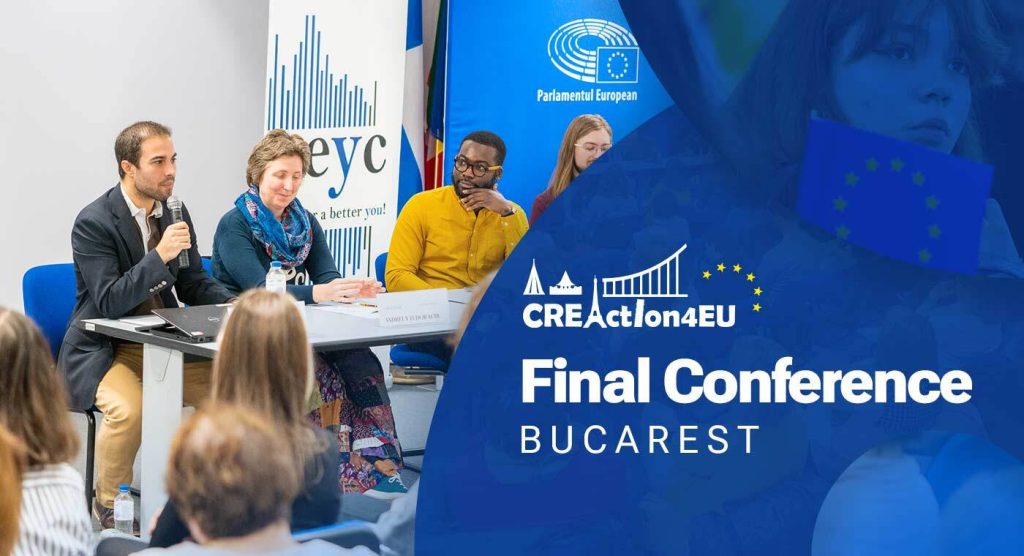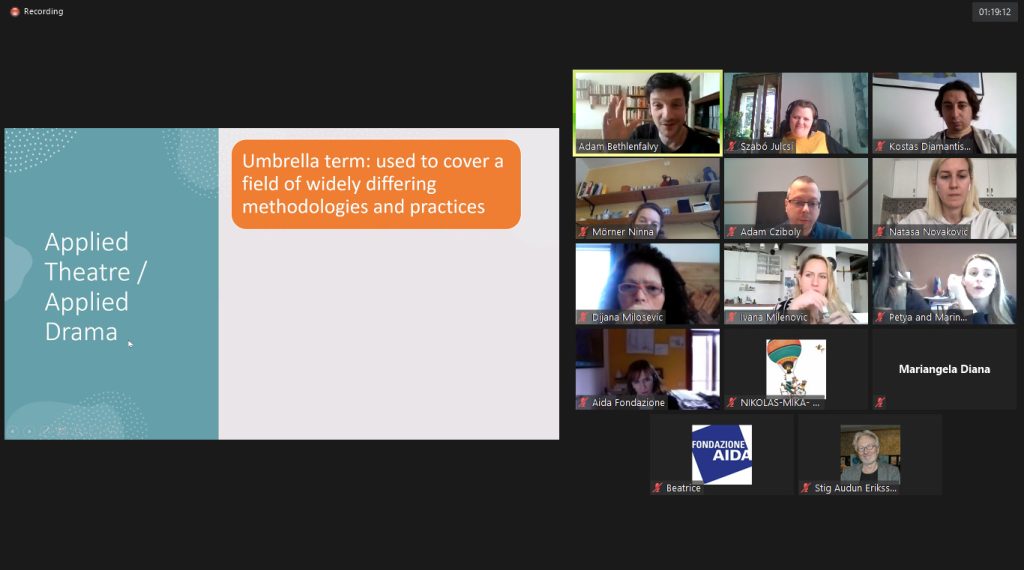“Business is not a sprint, but a long-distance run”
Fanni Szemerédi’s report on the final conference of the CREAction4EU project, Bucharest
At the closing event of the two-year international project in Bucharest, the participants were first able to hear presentations about the project itself and its steps:
- the handbook with best practices for the development of entrepreneurial skills
- the 8-week “Nem Ambassadors” online course
- the online available learning scenarios
- the guide dealing more thoroughly with the design thinking method
After the presentation of the project, entrepreneurs or presenters from border areas closely cooperating with entrepreneurial activity talked about their own activities and then answered the questions of the participating young people.
Mariia Rybachuk from Greece talked about community development during covid: how they first created an online forum, and how an entrepreneurial team later developed organically from it, organizing programs for local communities.
Andrei Olaru and Marius Petcu from Romania presented a small IT company that develops computer games. But what was really inspiring in their presentation was that they tried to convey a kind of approach to the students, the essence of which was the preservation of mental health and the development of a resilient attitude to failure.
Andrea Loredana Tudorache from Romania told about the forum theater as a tool for community building and that it is worth starting a business if you have a cause that excites you and interests you, something you do with passion. The money will come later.
Antonis Stylianou from Portugal spoke about the legal environment of businesses, supported the above with perceptive stories and highlighted entrepreneurial skills in a broader sense.
It was exciting for me to see that the questions received live, online clearly outlined which speakers and which topics piqued the interest of young people the most. Many people asked about the ideas before game development, the means of preserving mental well-being, the ways of processing errors and failures.
After the presentations and the discussion, the participants worked in small groups on the challenges encountered in entrepreneurship and their solution options, as well as coming up with ideas on how institutions, organizations, the state or the European Union could effectively help start-up and operating enterprises. There were groups that focused on crises (war, covid, energy crisis), there were groups that emphasized networking, and there were groups that focused on team building in the implementation of ideas. Raising financial resources appeared as a central issue in several groups.
It was a very inspiring day, the participants said goodbye to each other full of inspirational thoughts, including, for example, that “business is not a sprint, but a long-distance run”, or that “it is not the achievement of the goals, but the processes themselves that are important, although for these goals must be set”, or that “competition can be a motivation and an example, if we perceive it as a positive thing. And it’s up to us.”



